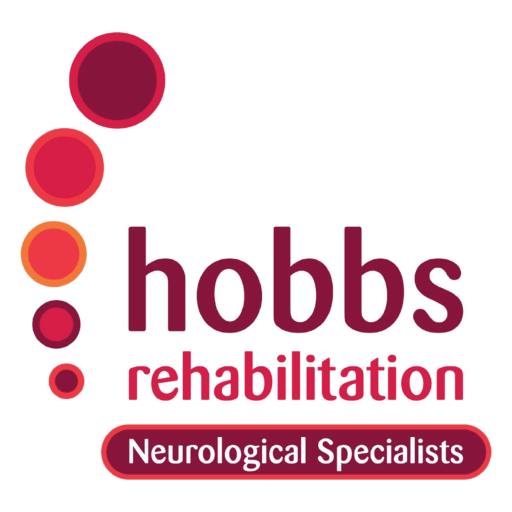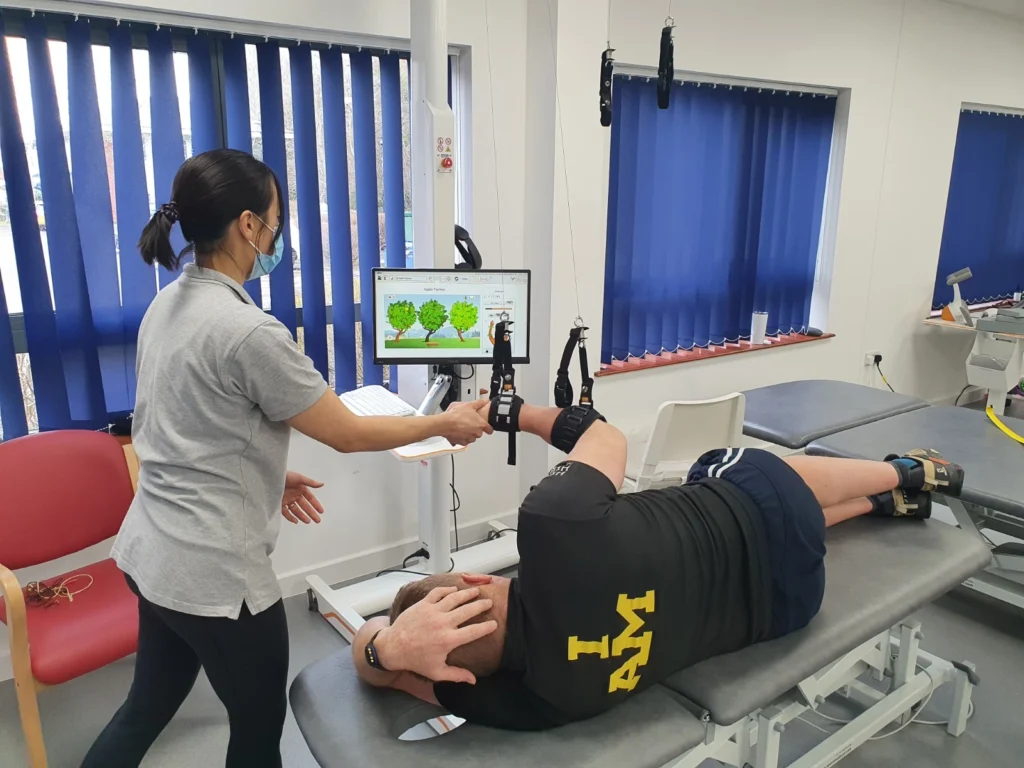In April this year, the national clinical guidelines for stroke for the UK were published. In October, NICE published its guidelines for stroke rehabilitation in adults.
The stroke guidelines have changed quite significantly to support intensive rehabilitation. It once recommended 45 minutes a day, which has now increased to 3+ hours a day. We know this is currently being under-achieved in the NHS but it is something we can provide in our intensive rehabilitation packages.
Stroke Rehabilitation Across The South of England
Hobbs Rehabilitation is the largest independent provider of specialist neurological therapy in the UK, currently providing specialist inpatient and outpatient neurological rehabilitation services for adults and children across the south of England with services available in Berkshire, Bristol, Dorset, Hampshire, Lymington, Salisbury and Winchester. A new 10-bed inpatient facility has recently launched in Salisbury with capacity for intensive stroke rehabilitation.
One of our specialist neurological physiotherapists at Hobbs Rehabilitation Intensive Neurotherapy Centre in Bristol shares her thoughts: “It’s great to see an increase in the intensive rehabilitation recommendations however we know the previous recommendations of 45 minutes a day per patient was not being met and without significant change to processes and procedures, the NHS is going to be unable to meet the new recommendations of 3 hours a day of interdisciplinary rehab per patient. At Hobbs Rehabilitation, we have a range of intensive rehabilitation packages available that we tailor to each patients’ individual requirements and goals, offering input from a variety of specialist neurological therapists, that can be started at any time in the patients’ stroke recovery and not just the acute stage.”
We combine hands-on concentrated rehabilitation services alongside neurotechnology to help our patients significantly speed up their recovery process. Evidence shows, it takes 400-600 repetitions of one movement to start neuroplastic change in the brain.
Hobbs Rehabilitation sessions are varied and engaging; the use of conventional therapy and neurotechnology provides an element of fun and keeps patients motivated when completing mundane exercises that some could find boring.
“the most effective therapy for promoting motor recovery after stroke is based on exercise and practice of functional tasks augmented as necessary by technological and priming techniques (Veerbeek et al, 2014b; French et al, 2016a; Wattchow et al, 2018; Scrivener et al, 2020). The main points of post-stroke therapy aimed at motor recovery are understanding the impairments, activity, and individualised goals, leading to a high number of repetitions of relevant exercise and functional tasks.”
Our therapists have experience working in the field of stroke rehabilitation; each patient is assessed to help identify specific individual needs, set therapy goals and create a tailor-made treatment programme. Conventional physiotherapy and prep work is used alongside task-specific practice. Multidisciplinary input on the packages involves joint working towards functional goals with physiotherapy, occupational therapy and speech and language therapy input, plus clinical neuropsychology where appropriate. We use functional electrical stimulation (FES) as part of neurotherapy at a number of our centres, in weekly 1:1 sessions as well as in the intensive rehabilitation packages. All of our clinicians are trained in using a number of devices and work with patients to find the right FES device that works best for their abilities.
Understanding the Varied Perspectives on Stroke Guidelines
There has been confusion in the Speech and Language Therapy field about the disparity between the guidelines issued in April and October and the provision of Speech Therapy as part of the 3-hour therapy provision. The RCSLT has issued a confirmation on the intensity of stroke speech and language therapy.
Hobbs Rehabilitation speech and language therapists can assess and give guidance in managing swallowing and communication difficulties following a stroke. We consider each patient, identify specific needs, set therapy goals and create a tailor-made therapy programme to work towards achieving these goals. Patients are seen in a 1:1 basis, or groups. In addition to clinical services, the team provide clinical education for care staff and have recently developed an online course, with certification, on Dysphagia.
Hobbs Rehabilitation speech and language therapists form part of our multidisciplinary team included in our intensive rehabilitation packages. The high intensity sessions are focussed on supporting people with communication impairments post-stroke to achieve their communication goals. The therapy delivered combines conventional therapy as well as the use of app-based intervention to achieve communication goals. Access to the latest neurotechnology at Hobbs Rehabilitation includes app-based resources that can be used following an assessment deeming them appropriate. The app-based technology will not only enhance 1:1 treatment, but also support therapy at home. Our speech and language therapists can also recommend apps and computer programs depending on patient needs and appropriateness.
In conclusion, the evolution of stroke rehabilitation guidelines in the UK signals a critical shift toward more intensive therapy, presenting both challenges and opportunities for patient care. Hobbs Rehabilitation stands at the forefront, providing tailored, multidisciplinary rehabilitation packages that align with these updated guidelines and remain dedicated to enhancing the quality of life for individuals on their journey toward stroke recovery.
Hobbs Rehabilitation accepts self-referrals and referrals from Consultants, General Practitioners, other Health Care Professionals and Case Managers. To refer, please complete a contact form and a member of the team will be in touch.

